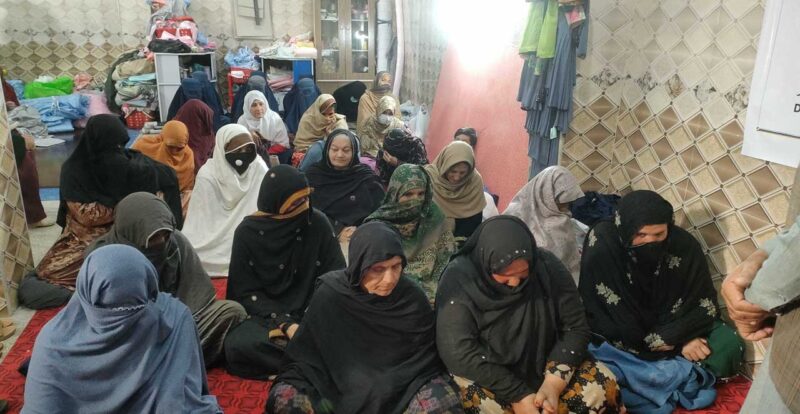Following the completion of procedures for the Intra-Afghan-Negotiations, the joint statement released by the negotiating teams of the Republic and Emirate is another step forward in the peace process. We, the Afghan women from provinces of Afghanistan, applaud both sides for this remarkable progress. Also, we would like to thank the government of Qatar for hosting the negotiating teams for the past months. We believe, apart from our international partners and allies, the Islamic countries including our neighbors are playing a constructive role in the Afghan peace process in order to reach a political deal.
A few years back, none of us could have imagined that the peace process will kick off and shall be welcomed by the Taliban. Today Taliban are not only supporting the Track-1 negotiations but are also attending track-2 dialogues. While the decades long conflict in Afghanistan is not easy to resolve but with commitment, dedication and honest dialogue; differences can be discussed and resolved no matter how complicated they are.
For the peace to penetrate deeper into Afghan society and to generate broader grassroots acceptance of the agenda and outcomes of the peace process, it is necessary that reasonable degree of transparency be maintained regarding the agenda of negotiations. Also, as matter of principle, Afghans have a legitimate right to be aware of the agenda of negotiations because it’s their future which is at stake. In line with this, we demand that the topics for the agenda proposed by the two sides be shared with the people. Each topic should be widely discussed with the people including the political parties, civil society, private sector and media across Afghanistan. This is important for a sustainable peace as this would give the people a sense of participation in their country’s peace process.
Now, when the peace talks have been paused for 22 days, we call on both sides to focus on consultations for finalization of the agenda that would be on the table when the negotiations resume next time. We also call on both sides, to not use the escalated violence as a tactic for negotiation. We also would like to call on the international community and neighboring countries to use their influence and leverage to prevent escalation of violence during intra-Afghan dialogue.
Afghanistan is the least peaceful country in the world, replacing Syria, according to the 2019 Global Peace Index report of Institute for Economics and Peace (IEP). Afghanistan ranks number 1 on global terrorism index—measuring the impact of terrorism— with the highest economic impact, equivalent to 16.7 percent of its Gross Domestic Product (GDP). Furthermore, 6 out of 20 most fatal terrorist attacks in 2019 occurred in Afghanistan, making it world’s most violent conflict with the highest number of deaths from war and terrorism.[1] Afghan people have suffered a lot. Even yesterday we witnessed ten rockets being fired in the residential areas of Kabul claiming lives, injuries and destruction. The level of destruction and trauma that people experience on a frequent basis in Afghanistan is beyond imagination.
On the other hand, COVID-19 has hit Afghanistan in the midst of a difficult political transition, an intensifying conflict, and significant uncertainty regarding future support. Afghanistan’s economy has been hard-hit by the outbreak of the COVID-19 virus, there has been a huge negative impact on consumption, exports, and remittances, making the country further vulnerable to poverty.
We call on both sides to consider people’s demands, do not escalate the violence, agree on the agenda and resume the negotiations right after 5th January, 2021 with no further delay. Even when, Afghans are losing their dear ones to war on daily basis, we are still optimistic and looking up to the negotiation teams from both sides to resume negotiations with no delay and conclude successfully through a sustainable political settlement.
[1]Available at: https://www.visionofhumanity.org/wp-content/uploads/2020/11/GTI-2020-web-1.pdf, retrieved on 12th December, 2020.
Here is links:
No Escalation of Violence as a Tactic -Dari
No Escalation of Violence as a Tactic -Pahto
No Escalation of Violence as a Tactic -English

